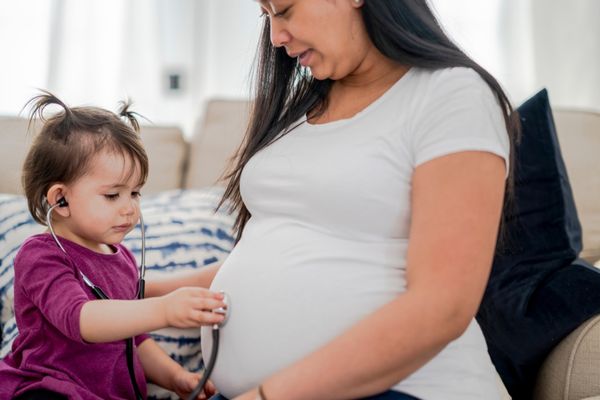
- Details
- By Native News Online Staff
In 2020, the U.S. Department of Health and Human Services’ Office of Minority Health (OMH)— in partnership with the Center for Disease Control and Prevention— announced a new campaign: “Hear Her.”
The ongoing campaign aims to prevent pregnancy-related deaths among Native Americans and Alaska Natives—who are twice as likely to die of pregnancy-related complications— by sharing potentially life-saving messages about urgent warning signs.
The new “Hear Her” campaign segment builds on the work the CDC and OMH have been doing to reach tribal communities and provide healthcare providers and Native people with critical health resources.
“Due to ongoing and historical trauma, American Indian and Alaska Native people are more likely to have underlying chronic health conditions and experience sexual or interpersonal violence,” the campaign website reads. “American Indian and Alaska Native people often experience discrimination or racism and face systemic barriers to care including higher rates of poverty and long distance to quality health care services.”
Want more Native News? Get the free daily newsletter today.
“Through the CDC and OMH partnership, we have expanded the existing Hear Her campaign to create culturally appropriate resources that amplify the experiences of American Indian and Alaska Native women while giving them tools to advocate for their health and well-being during and after pregnancy,” said Felicia Collins, M.D., HHS Deputy Assistant Secretary for Minority Health and OMH Director, in a statement. “The campaign also emphasizes the importance and role of health care providers in providing respectful care.”
More Stories Like This
New Mexico Will Investigate Forced Sterilization of Native American WomenUSDA Expands Aid for Lost Farming Revenue Due to 2025 Policies
Two Feathers Native American Family Services Wins 2026 Irvine Leadership Award
Bill Would Give Federal Marshals Authority to Help Tribes Find Missing Children
Indian Health Service to Phase Out Mercury-Containing Dental Amalgam by 2027

